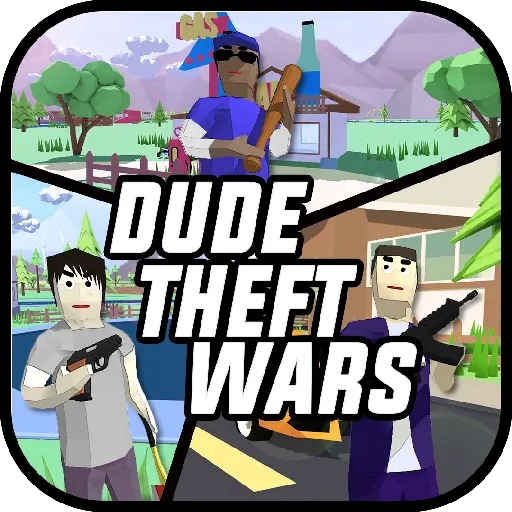How AI Story Writing is Changing the Publishing Industry
The publishing industry has long been a dynamic space, driven by human creativity, storytelling, and market demand. However, the rise of AI-generated narratives is reshaping the landscape. With advanced AI models capable of generating entire stories, the industry is facing both opportunities and challenges. From how books are written to how they’re distributed, AI’s integration into storytelling is redefining traditional publishing norms.
AI’s Impact on Traditional Publishing
The traditional publishing industry, which relies on authors, editors, and publishers to bring stories to readers, is beginning to integrate AI in several key ways. These include story generation, idea exploration, editing, and even content marketing. Below are some critical areas where AI is having a profound effect:
1. Faster Content Creation
AI tools can generate drafts and stories at an unprecedented rate, dramatically reducing the time it takes to produce a manuscript. This allows publishers to meet market demands faster, from seasonal trends to emerging story niches.
2. Editing and Proofreading
AI tools can scan manuscripts to check grammar, coherence, tone, and structure, saving editors time. Services like Grammarly and AI editing assistants have already become standard for streamlining the editing process, allowing editors to focus on creativity rather than repetitive corrections.
3. Personalized Content for Target Audiences
AI-driven algorithms allow for audience segmentation and personalized storytelling. Publishers can analyze reader preferences, demographics, and purchasing history to generate or curate content specifically tailored to different reader segments.
4. Redefining the Role of the Publisher
With AI streamlining the production pipeline, the role of traditional publishing companies is evolving. While AI can assist in content creation, publishers are focusing more on distribution, marketing, and quality control.
5. Cost Reduction
AI’s ability to generate drafts and content rapidly lowers costs associated with labor, research, and resource allocation. This creates opportunities for smaller publishers and independent writers to enter the market without the same financial pressure as traditional publishing houses.
While these opportunities are exciting, they also raise questions about the ethics of AI use and how far AI should go in replacing traditional processes in publishing.
Are AI Stories Replacing Human Authors?
One of the most significant debates surrounding AI’s role in storytelling is whether AI will replace human authors. While AI can produce impressive drafts, complete stories, and even mimic emotional nuance, the answer lies in understanding the unique role of human creativity.
The Argument for Replacement
AI-generated stories can already emulate popular genres and narrative structures. Tools like ChatGPT and other AI story generators are capable of producing high-quality drafts that follow plotlines, develop characters, and evoke emotion. As these systems improve, some argue that they could replace authors in certain industries, particularly for mass-market genres like romance, sci-fi, or young adult fiction.
The Argument for Collaboration
Despite the capabilities of AI, storytelling involves much more than just stringing words together. Emotional depth, unique life experiences, personal style, and unpredictable creativity are distinctly human qualities. Most authors view AI not as a competitor but as a tool for collaboration, brainstorming, and refining ideas.
The Hybrid Model
In the publishing industry, AI is likely to act as a creative partner rather than a full replacement. Many authors already use AI to overcome writer’s block, generate ideas, or refine drafts. This hybrid model suggests that AI will support human creativity rather than eliminate it altogether.
The Ethical Perspective
Even if AI-generated stories can replace human-written ones, ethical concerns arise. Copyright issues, authorship rights, and the uniqueness of human storytelling traditions could lead to resistance against AI-generated literature overtaking human contributions.
The conversation is far from over, and whether AI replaces authors or becomes a supporting tool will depend on technological advancements, market needs, and public opinion.
Case Studies of AI Stories in Modern Media
AI is no longer just a theoretical concept in storytelling. Several real-world examples illustrate how AI-generated stories are already shaping the media landscape and testing the boundaries of creativity. Let’s explore a few noteworthy case studies:
1. The Day A Computer Wrote a Novel (2016)
- The Story: In 2016, an AI system in Japan wrote a novel titled The Day A Computer Wrote a Novel. It was submitted to the Hoshi Shinichi Award, a prestigious Japanese literary award, showcasing AI’s potential to create cohesive and well-structured narratives. While the story didn’t win, the concept of a machine-written novel making its way into literary competitions raised significant industry debate.
- Significance: This event marked one of the first high-profile instances of AI crossing into the traditional publishing sphere, showcasing how AI could generate entire narratives that adhere to award-winning storytelling conventions.
2. AI in Sci-Fi and Gaming Narratives
- In the realm of gaming, AI is being used to create dynamic narratives for player experiences. For example, video games like AI Dungeon use AI storytelling to adapt narratives based on the user’s decisions. The player becomes an active participant in the story, with AI dynamically generating responses and consequences based on input.
- Significance: This interactivity represents AI’s potential not just in static storytelling but in real-time, user-driven narratives—a new kind of storytelling experience for audiences.
3. GPT-Based Content on Online Platforms
- Platforms like Medium and YouTube have seen stories generated by AI go viral. Writers using AI tools like ChatGPT to craft engaging short stories, blog posts, and even creative essays have proven that AI can emulate human storytelling styles. These AI-generated stories highlight the balance of creativity and automation, challenging readers’ understanding of authorship.
4. AI and Film/Screenwriting
- Hollywood has explored AI-generated scripts to produce drafts, improve dialogue, or brainstorm innovative concepts. For instance, screenwriters are using AI tools to draft story ideas or rewrite dialogue to fit different narrative arcs. This has the potential to save time, especially for scriptwriters under pressure to meet deadlines.
5. Ethical Publishing Experiments with AI
- Several publishing companies are exploring AI-generated stories as a part of ethical experimentation, exploring transparency with readers about machine-generated content and ensuring proper author attribution for AI’s contributions.
These case studies reveal a dynamic trend: AI-generated stories are no longer confined to isolated experiments. They are now becoming part of mainstream publishing and media industries, influencing how stories are written, consumed, and understood.
Conclusion: A New Publishing Landscape
AI story writing is undeniably reshaping the publishing industry. It introduces opportunities like faster content generation, personalized storytelling, and cost savings. However, it also poses challenges like ethical concerns, copyright issues, and fears of replacing human authors.
As AI continues to integrate into storytelling, collaboration, creativity, and innovation will define its success. Rather than seeing AI as a replacement, the publishing industry is likely to embrace it as a tool that empowers both emerging and seasoned authors. The next chapter in storytelling will be one written with both human ingenuity and artificial intelligence—a collaborative, technological, and creative journey.

